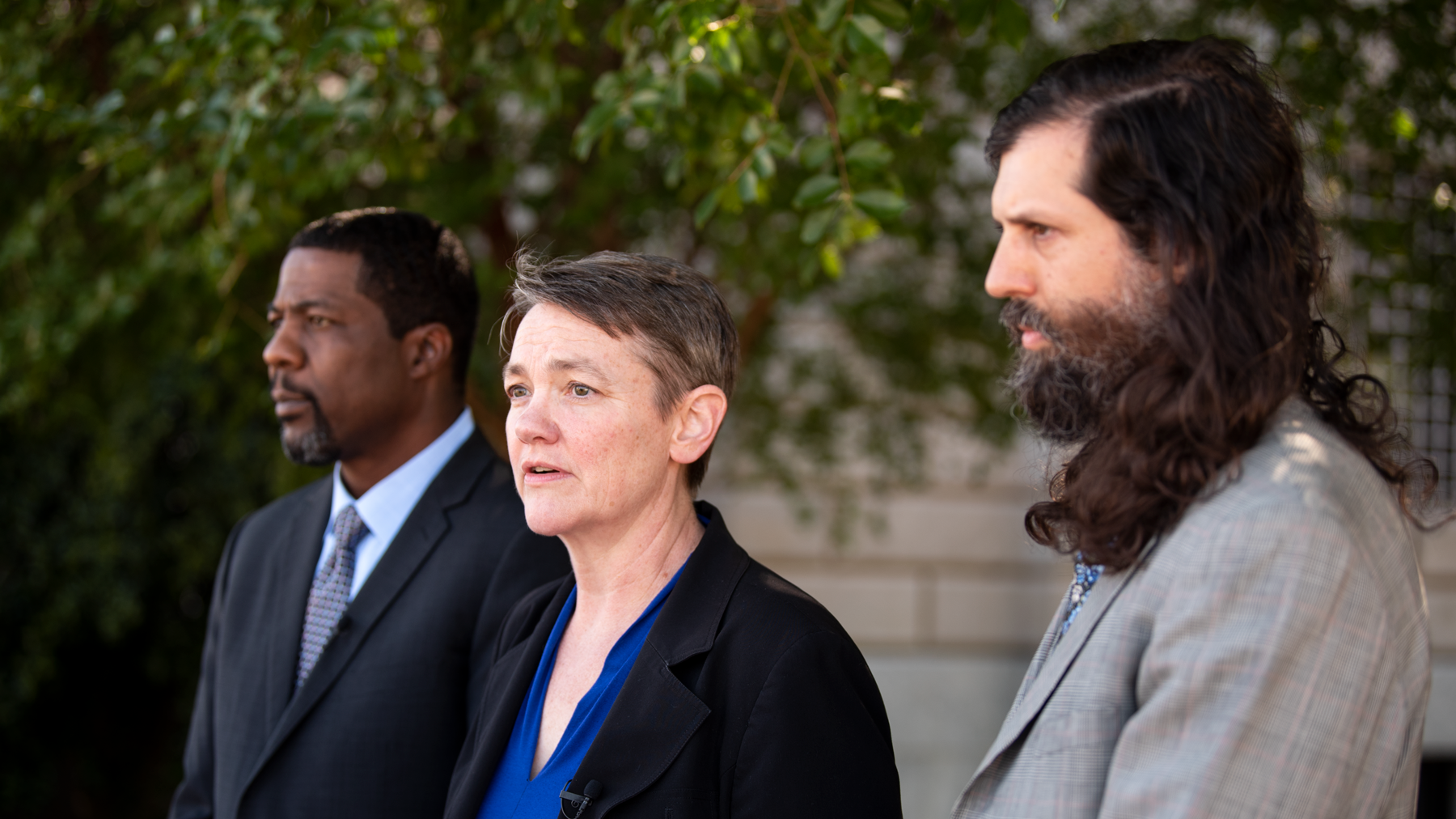Nearly two years after a federal judge deemed mental health care for Alabama’s prisoners “horrendously inadequate,” the Alabama Department of Corrections (ADOC) is again the subject of a scathing court order in the SPLC’s long-running Eighth Amendment case against the department.
This time, the court laid bare ADOC’s failure to prevent prisoners’ deaths by suicide. “The risk of suicide is so severe and imminent that the court must redress it immediately,” U.S. District Judge Myron H. Thompson wrote in a 210-page ruling filed on May 4.
Thompson ordered ADOC to enforce 30-minute security checks for prisoners in segregation units; to immediately implement life-saving measures for prisoners in segregation; and to not place prisoners released from suicide watch into segregation units. The court will monitor ADOC to ensure compliance.
“The defendants argue that they cannot prevent all suicides in ADOC,” Thompson wrote. “It is true that, as in the free world, not all suicides can be prevented. But this reality in no way excuses ADOC’s substantial and pervasive suicide prevention inadequacies. Unless and until ADOC lives up to its Eighth Amendment obligations, avoidable tragedies will continue.”
Segregation, a type of confinement in which prisoners are isolated with very little out-of-cell time, figures prominently in ADOC suicide death cases. Solitary confinement can exacerbate serious mental health issues, according to experts who previously testified at trial.
“ADOC needs to limit the number of people put into segregation,” said SPLC Senior Supervising Attorney Maria Morris, lead attorney in the case. “We hope ADOC addresses getting people out.”
ADOC will likely face challenges in complying with Thompson’s order. Alabama’s prisons are in crisis. The facilities are dramatically understaffed and overcrowded, twin problems that have led to chronic violence and rampant civil rights abuses. A spate of murders, sexual assaults and extortion cases – along with the high number of suicides – have recently garnered national attention in the wake of a blistering report last month by the U.S. Department of Justice.
“There’s a tremendous amount of suffering occurring in ADOC, day in and day out,” Morris said. “The whole system needs to be addressed. Prisoners need more and better care.”
Thompson’s order on the suicides issue marks a pivotal moment in the SPLC’s lawsuit, initially filed in 2014. It represents the first ruling requiring ADOC to implement immediate, measurable and substantial reforms. Still pending are other issues in the mental health phase of the case and further litigation involving inadequate medical and dental care.
Thompson described a department that fails on multiple fronts to prevent suicides. Staffers did not properly screen prisoners for suicide risk before placing them in segregation, the court said. They left prisoners in segregation with long stretches of time, up to an hour or more, between security checks. One officer even lied on his duty post log, falsely “indicating that he had completed the required checks” in a unit, according to the order. After a prisoner on the unit died by suicide, ADOC reviewed videotapes of the shift and discovered that the officer did none of the required checks.
Other officers made little effort to save lives, sometimes waiting for medical staff to arrive before beginning to perform CPR. People who clearly should have been placed on suicide watch – including some who told officers outright that they wanted to kill themselves – were not placed there.
Thompson wrote about each of the 15 people who recently died by suicide in ADOC custody since Dec. 30, 2017.
Rashaud Morrissette died on March 8, 2019. “Before entering segregation, he did not receive a critical placement screening for issues such as whether he was at risk of suicide [nor] had a serious mental illness,” Thompson wrote.
Correctional officers discovered Daniel Gentry hanging in his cell on Feb. 6, 2019, and “waited several minutes for medical staff, who upon arriving, told them to remove the sheet from his neck and initiated CPR,” according to the order.
Thompson particularly took ADOC to task for the death Roderick Abrams, who died by suicide in January.
“Rampant suicide-prevention failures plagued his case, including failing to place him on suicide watch when he expressed suicidality, repeatedly failing to screen him for mental-health issues prior to placing him in segregation, failing to complete mental-health appointments due to staffing and space shortages, and failing to immediately initiate life-saving measures when he was found hanging in his cell,” the judge wrote.
Abrams initially was held in segregation for more than three months, according to the ruling. Less than two weeks into that stint in confinement, he told a nurse that he had suicidal thoughts and had told people he was going to attempt suicide.
Nevertheless, Abrams remained in segregation instead of being placed on suicide watch and did not receive a suicidal risk assessment at that point. On December 21, he was finally placed on suicide watch, only to be released less than a week later and sent back to segregation by Jan. 2. He died that day.
Officers discovered him “more than an hour after the last security check,” according to the order.
Thompson noted several instances in which ADOC has not complied with suicide-prevention measures previously agreed to by the state. As a result of ADOC’s failure, he will establish an interim, external monitoring scheme. ADOC is also required to establish its own formal, internal monitoring scheme.
The parties have less than two weeks to meet with a U.S. magistrate judge to agree upon the monitoring systems beyond what was resolved in the court’s opinion. If an agreement isn’t reached, ADOC will have until the end of the month to submit its own proposal.
Photo by Michelle Leland/SPLC



